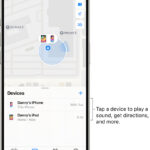Chief Keef, a name synonymous with Chicago drill music, found himself at the center of a peculiar controversy in July 2015 that extended beyond the typical music industry drama. For a fleeting three minutes on July 25th, he technically achieved a performance in the Chicago area, albeit with significant asterisks. While the performance took place 20 miles outside of Chicago, across state lines in Indiana, and was delivered via hologram beamed all the way from California, it was a Chicago-area performance nonetheless. However, the brief set was quickly shut down by local police, highlighting the complicated relationship between the artist and his hometown.
This concert, or rather its abrupt cancellation, became a flashpoint in an ongoing and very public feud between the then 19-year-old Chief Keef and Chicago officials. Born Keith Cozart, Chief Keef is from Chicago, specifically the city’s South Side, in the notoriously tough Englewood neighborhood. This background is crucial to understanding the context of the controversy. Rising to prominence in 2012 with his viral hit “I Don’t Like”—later famously remixed by Kanye West—Keef became a leading figure in the drill music scene. Despite only having released one album at that point, he had become a lightning rod for discussions surrounding Chicago’s well-documented struggles with violence.
Keef’s music often reflects the harsh realities of his upbringing, with lyrics that unflinchingly depict gun violence and street life. Lines like “Pistol to his throat/ Blow this motherfucker, he gone choke” from his track “Faneto” are indicative of his raw and often aggressive style. This lyrical content, coupled with Keef’s own troubled legal history—including drug and felony gun charges and parole violations—painted a controversial picture. Adding to the somber narrative, both his cousin, Big Glo, and associate Marvin Carr, known as Capo, had tragically become victims of gun violence in Chicago streets shortly before this incident.
However, in the period leading up to the hologram concert attempt, a shift seemed to be occurring. Chief Keef had publicly embraced the “Stop the Violence” movement in Chicago and released “Ain’t Missing You,” a single carrying an anti-violence message. Teaming up with Greek billionaire heir Alki David, who signed Keef to FilmOn.TV after his departure from Interscope Records, the rapper aimed to organize a benefit concert in the Chicago area. The proceeds were intended to support the families of Capo and 13-month-old Dillan Harris, an infant tragically killed in a hit-and-run during Capo’s shooting. Keef and David had already covered the funeral costs for both victims and intended for the concert to further assist their families. Due to outstanding Illinois warrants for issues like child support and probation violations preventing his physical presence, Keef planned to perform via hologram.
Despite these seemingly positive intentions, Chicago city officials remained deeply skeptical. Mayor Rahm Emanuel’s office exerted pressure, issuing a statement labeling Keef an “unacceptable role model” whose music “promotes violence” and arguing that the hologram performance posed a “significant public safety risk.” This pressure led to the cancellation of the initial venue and subsequent difficulties in finding an alternative location within the city. Ultimately, the event was relocated to Craze Fest in Hammond, Indiana, just outside Chicago. Emanuel’s office declined to comment further to Billboard on the matter.
Police intervention led to the abrupt shutdown of Chief Keef’s hologram concert in Hammond, Indiana, highlighting the ongoing controversy surrounding the Chicago rapper and his performances.
Chief Keef, speaking to Billboard from California, expressed his shock and frustration at the shutdown. He believed city officials were prejudiced against him, stating, “[City officials] just be hating. They don’t want to see a young black man be successful and try to do something good. It’s crazy.” His opinion of Mayor Emanuel was even more pointed and unprintable in polite company. In a surprising turn, Keef even announced on Twitter his intention to run for mayor of Chicago. While seemingly serious at the time, his past legal issues would likely disqualify him from holding office.
Hammond Mayor Thomas M. McDermott Jr., however, offered a different perspective, asserting that Emanuel’s office had no influence on his decision to shut down the hologram concert. He framed it not as censorship but as a public safety concern. McDermott admitted unfamiliarity with Chief Keef personally but stated his perception of the rapper’s persona as one that “glamorizes gang-lifestyle, anti-cop, anti-women, pro drug-use.” Given the public venue and surrounding residential area, McDermott explained his unwillingness to risk attracting gang-related violence from Chicago into Hammond.
Despite Hammond’s justifications, legal experts like Northwestern University constitutional law professor John McGinnis suggested the shutdown could be a First Amendment violation, questioning the evidence of imminent danger required to justify such action. Chief Keef’s manager, Idris Dykes (Peeda Pan), argued that Keef was unfairly scapegoated for systemic issues of gang violence in Chicago that predated his fame. He emphasized Keef as “a product of the inner city,” caught in a cycle of violence.
While Chicago’s homicide rate had seen a decrease in 2014, it remained a city grappling with significant gang violence. Community activist Lance Williams echoed the sentiment that Chief Keef was being unfairly targeted, fitting a prejudiced “prototype” for how authorities viewed young African American men and the problem of violence. Sources within Keef’s camp even alleged that the Chicago Police Department had attempted to pressure the hologram show’s producer to cancel the event, a claim denied by a CPD spokesperson.
Alki David, Chief Keef’s business partner, remained a vocal defender, vowing to pursue legal action and involve the ACLU, arguing that the incident represented unwarranted censorship and municipal overreach into young people’s music choices. The controversy coincided with the impending release of Keef’s long-awaited album Bang 3, adding another layer of complexity to the situation. His deal with Interscope Records had dissolved due to creative differences, and Bang 3 was slated for release on David’s MondoTunes label.
Looking ahead, both Keef and David expressed intentions to continue with hologram performances, with aspirations for larger venues and even future benefit concerts in Chicago, despite the recent setbacks. Chief Keef, in his characteristic forward-looking manner, simply stated, “There’s a lot more to come.” This incident underscores the complex intersection of music, social issues, and personal history, particularly for artists like Chief Keef whose work is so deeply rooted in their place of origin – Chicago.


